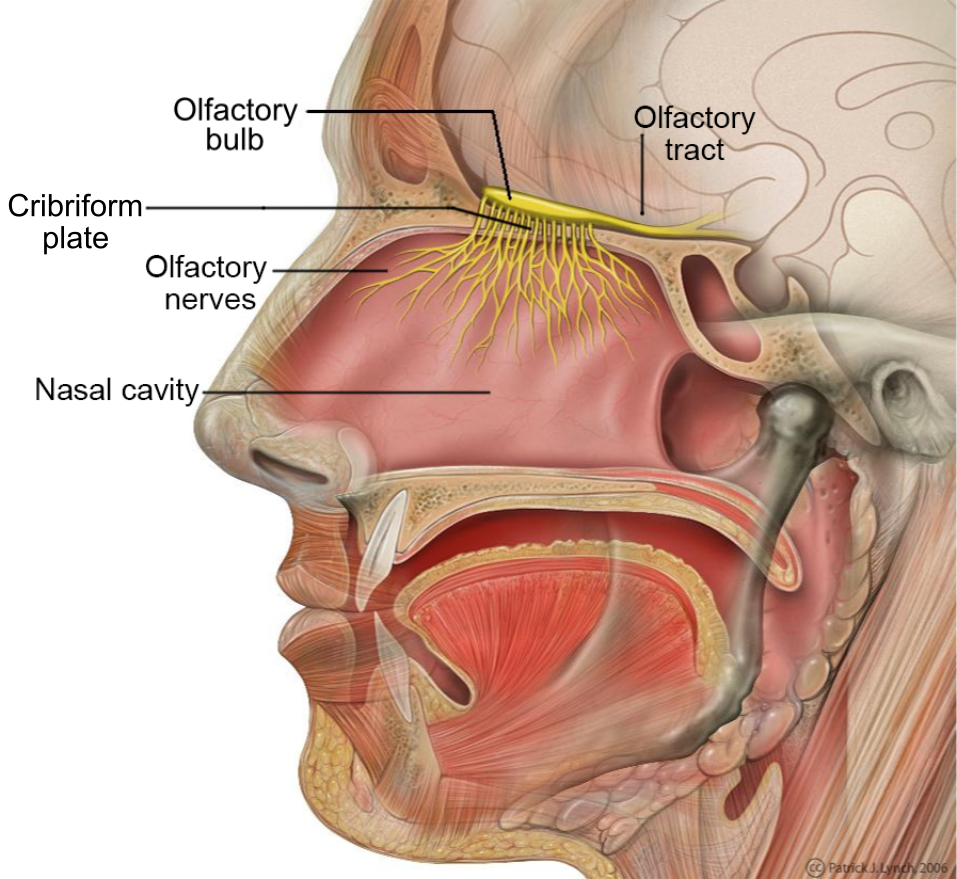Science Behind Smell
In A Natural History of the Senses, Diane Ackerman mentions that smell is a unique sense, different from senses such as sound or sight. In sight or sound, whatever we hear or see first goes into a relay center in the cerebral hemisphere of our brain, and then it travels to other regions of our brain. However with smell, it travels directly to different regions of the brain. This is due to the fact that our sense of smell evolved before our other senses.
 When we inhale, chemicals we inhale land in a mucus membrane covering our olfactory neurons. The chemicals dissolve and then bind to our neurons, which triggers a signal, and follows a pathway to different parts of the brain.
When we inhale, chemicals we inhale land in a mucus membrane covering our olfactory neurons. The chemicals dissolve and then bind to our neurons, which triggers a signal, and follows a pathway to different parts of the brain.  There is a chemical known as androstenone. This chemical is found in boar’s saliva. It is the first mammalian pheromone to be identified. Androstenone can smell like vanilla to some people, while for others it smells like sweat and gives off an unpleasant odor.
There is a chemical known as androstenone. This chemical is found in boar’s saliva. It is the first mammalian pheromone to be identified. Androstenone can smell like vanilla to some people, while for others it smells like sweat and gives off an unpleasant odor.
For example, fresh cut grass for me reminds me of childhood as my dad mowed the lawn and I played outside with friends. While for others, they may not have linked any specific memorable experience with that specific smell, therefore when they smell fresh cut grass it won’t trigger any memories.
Another scent that triggers memories for me are crisp, freshly printed pages and books. I’ve been playing piano since I was a kid, and everytime a new piece was assigned by my teacher, my mom would help me print out the notes for the music and we would sit down at night and learn the piece.
It’s fascinating how smell was our first evolved sense. Possibly it could be due to the fact that when our ancestors were foraging, they would smell and then taste what they found, and based off whether or not the sense was pleasant, they would pick what they found.

It strikes me how the ritual of your mother printing out the musical notes for every new piece your piano assigned you might have heightened the power of the particular memories "crisp, freshly printed pages and books" trigger for you. There's a psychological term for this - "evaluative conditioning" - referring to the process by which specific feelings, emotions, and memories get attached to specific sensory experiences, and vice versa. It seems like your memories of your mom printing out music for you has "evaluatively conditioned" your affective response to the smell of crisp, freshly printed pages.
ReplyDeleteI was looking for this term! Could you apply this to fresh cut grass as well? It seems that this could just apply to any sensory experience as long as it has some connection behind it.
DeleteI have the same scent correlation with freshly cut grass and my childhood... I wonder if there are people who like the smell of freshly cut grass that could say they like it with no fond memories attached to it.
ReplyDeleteI think so, for example I like the smell of gasoline but I have no memories attached to that scent.
DeleteDo you think there could be any subconscious memories there? Like there's no memory that you specifically relate to the smell of gasoline... but maybe a feeling or another fond memory where the smell of gasoline was present so even though its not directly related it's associated?
Delete